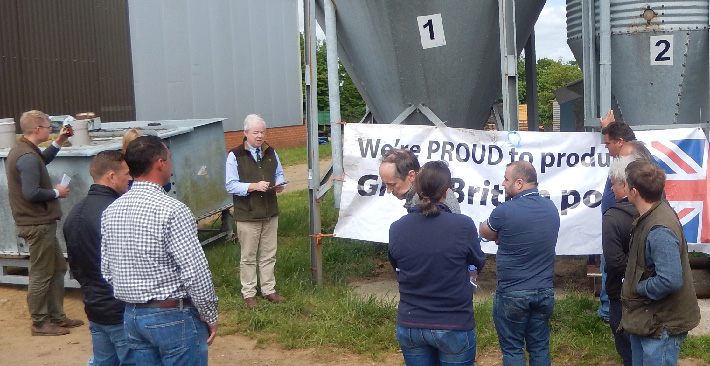It’s a pity that the pig trade has not been as hot as the weather and although the SPP moved up a touch, rising to 152.5p, European mainland prices have generally stayed at similar levels on the week.
On this side of the Channel reports are indicating that pig supply is exceeding demand to some extent, despite the ongoing period of barbecue weather. The recent heatwave will also have an adverse effect on the demand for pork roasting joints, as all most people really want is either a cold beer or an ice cream!
Cattle and sheep prices are also under pressure and the whole red meat sector needs to give more thought to the ways in which consumers’ confidence and interest in meat can be revived.
Most weekly contribution prices have remained at similar levels within the 143-150p range. The spot market has however remained a chilly environment with more pigs available than were really wanted and spot trades have generally been taking place in the 145p region according to spec.
Cull sow prices have also held at similar levels, with the value of the euro little changed on the week worth 89.55p on Friday. As a result, most cull quotes have been in the 95-98p range and with much of Germany on holiday, processers demand has remained relatively quiet.
Perhaps when the implications of a Brexit no deal filter through, Sterling will crash and the euro rise, which would help to put up the cost of pig meat exports and the value of imports.
Weaner values continue to demonstrate a two-tier trade with RSPCA assured weaners much easier to sell than their Red Tractor counterparts. The latest AHDB 7kg average price has moved up by a pound to £39.08 but there were insufficient numbers of 30kg pigs traded to quote, although the 30kg price tends to be around £15 higher than the 7kg value and may lead some people to wonder why they bother to put on the extra weight, because it’s difficult to grow a pig from 7kg to 30kg for less than £30!
Feed prices have also continued to remain at sustainable levels as far as pig farmers are concerned, with futures prices for UK feed wheat a shade easier at £146/t for September delivery and spot feed wheat on an ex-farm basis currently quoted at average prices of £133.90/t compared with £169.00/t a year ago.
Barley futures prices are also trending easier at £131/t for September. Protein values are on something of a plateau and Hipro soya traded at £305/t for August-October and November-April a shade firmer at £312/t.
And finally on the disease front, more worrying news in connection with the spread of African swine fever in Europe, with reports of a major outbreak in Poland affecting a herd of 1,320 pigs and yet another reason why all livestock farmers should comply with the highest levels of bio-security, especially as far as people and meat products coming from Poland are concerned.
With the exception of the Czech Republic, none of the other European ASF affected countries including Belgium and Hungary have yet been able to declare themselves as ASF free after one year. In any event, the UK pig industry needs to work together very closely to ensure that ASF and any other exotic diseases do not manage to swim the Channel and put us in the drink (or on the drink)!
Just to add to the disease challenges being faced by the farming industry as a whole, reports are also now being received that 11 localities in Vietnam have also been hit by Avian flu, so we just have to hope that those Vietnamese chickens can’t fly far enough to reach us too!




